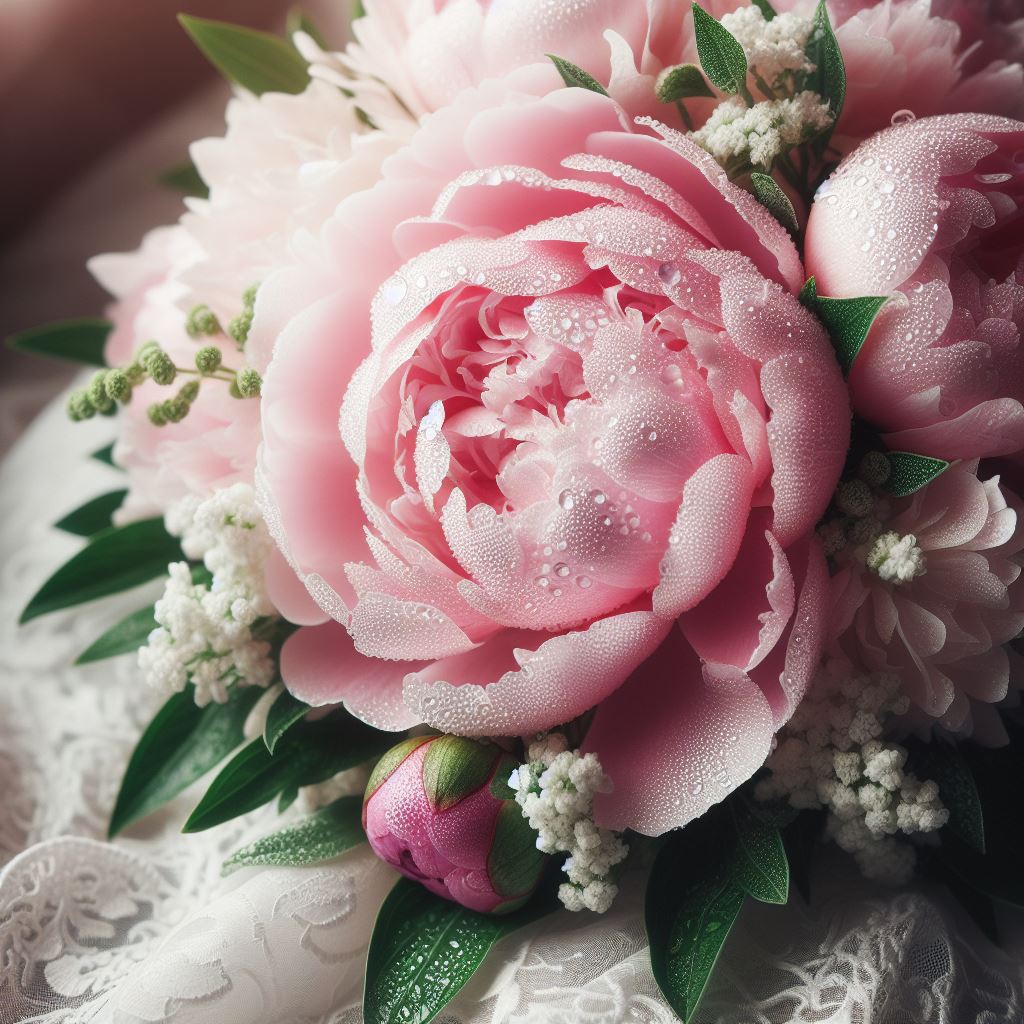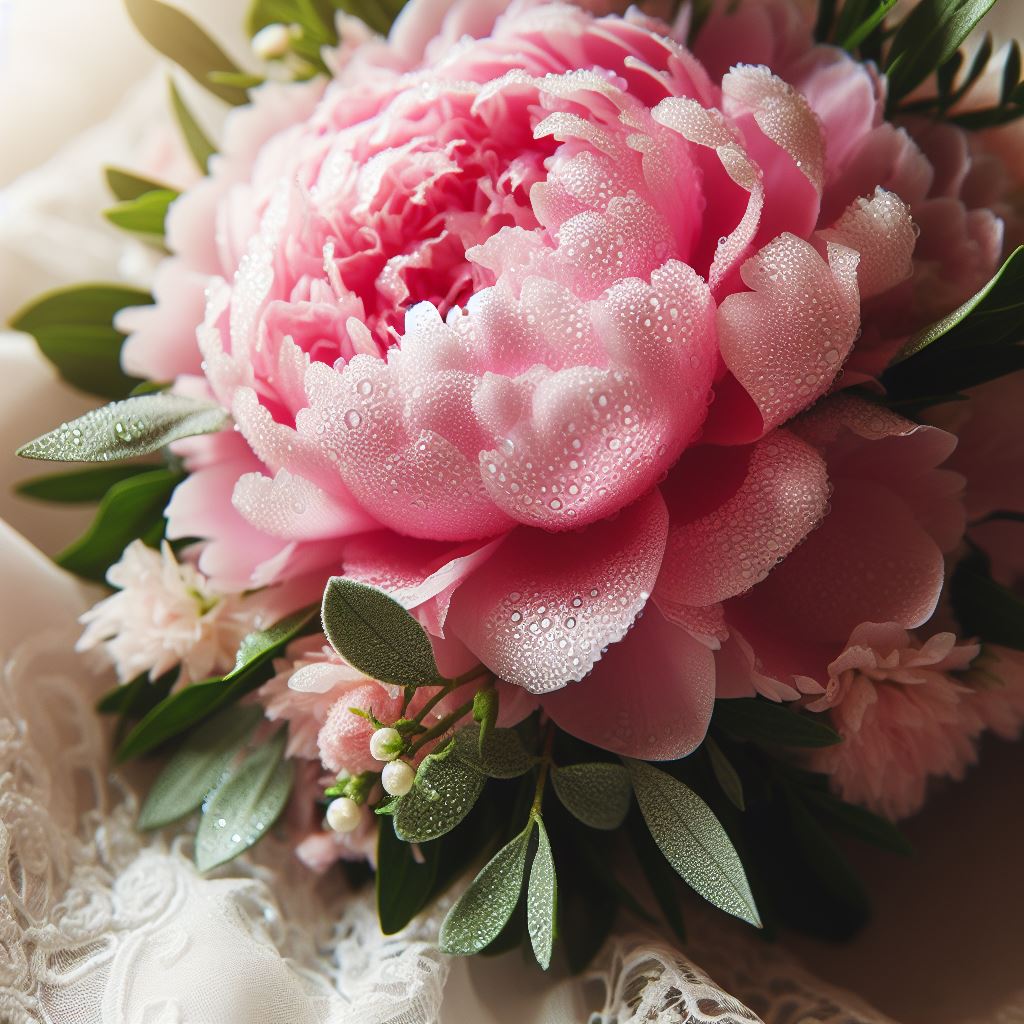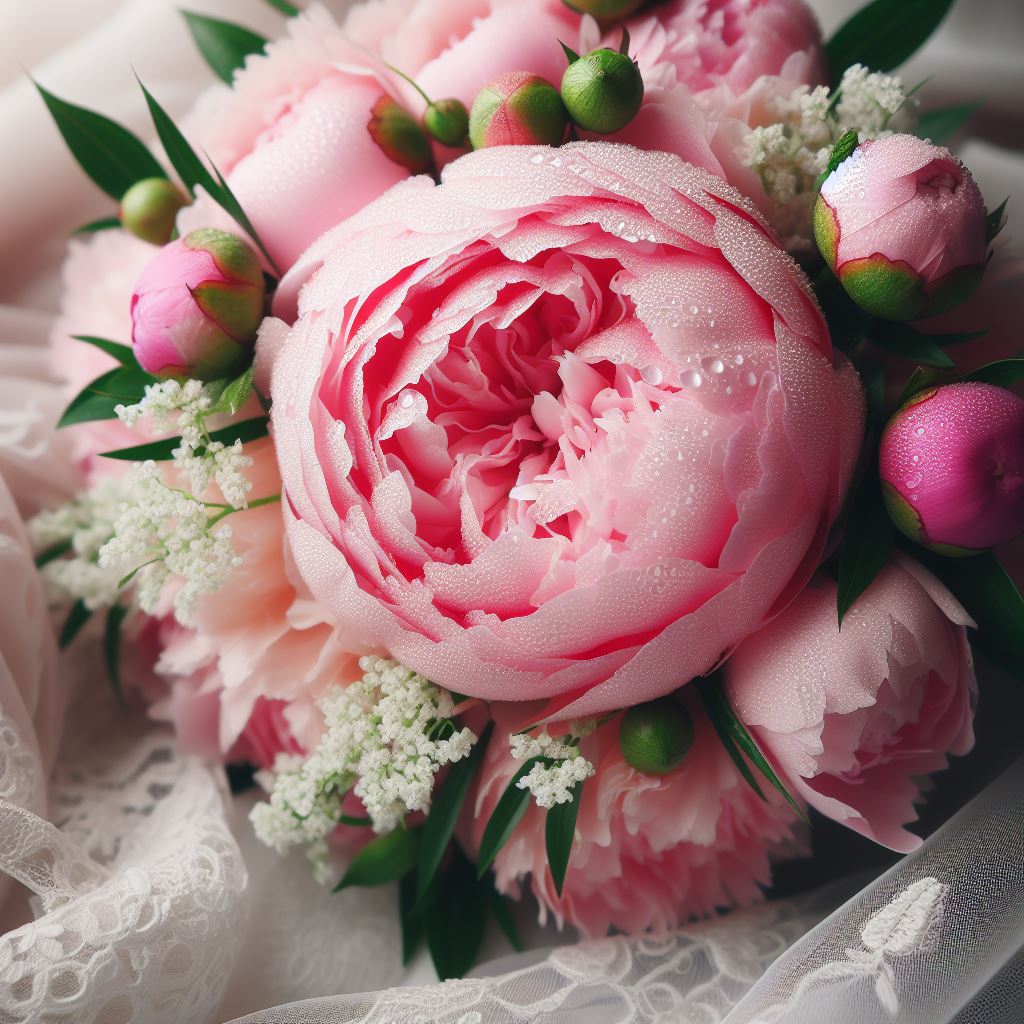Learn about What Does Peony Flower Symbolize. Learn the meanings behind the enchanting peony flower. Find out more about its symbolism, cultural significance, and more.
Introduction
The peony flower is a magnificent perennial that is known for its lavish blooms and delightful fragrance. Peonies, which belong to the genus Paeonia, are available in various colors, including shades of pink, white, red, and even yellow. The petals of these exquisite flowers are usually arranged in layers, giving them a feeling of fullness and luxury. It is well known that peonies have a beautiful and symbolic meaning across various cultures, often representing prosperity, love, health, and healing.
Their ability to add a touch of elegance to any landscape makes them popular among gardeners in temperate climates. There is no doubt that peonies continue to enchant admirers worldwide with their captivating allure and timeless charm. This has made them an important part of gardens, flower arrangements, and the people’s hearts everywhere.

What Does Peony Flower Symbolize?
Peonies are richly symbolic, representing many meanings depending on the cultural contexts in which they are used. Peonies are considered to be a symbol of wealth, prosperity, and honor across many cultures. A Chinese flower known as the “king of flowers,” signifies nobility, royalty, and good fortune. Peonies are also associated with love, romance, and affection, making them an ideal choice for weddings and romantic gestures.
The lush blooms and delicate fragrances of these plants imply beauty, elegance, and femininity, embodying the essence of grace and charm. It is also well known that peonies are associated with healing and compassion due to their roots being utilized in traditional medicine for centuries. Peony flowers have a universal symbolism that transcends borders, captivating hearts and minds alike with their timeless appeal and profound significance.
Cultural Significance
1. Chinese Culture
Symbolic of prosperity, honor, and feminine beauty, the peony holds a revered position in Chinese culture. This flower is often referred to as the “King of Flowers” or the “Mudan,” which represents wealth and good fortune. The peony is a prominent feature in Chinese art, literature, and mythology, representing prosperity and good fortune.
2. Japanese Culture
Peonies are also highly regarded in Japan, where they are associated with honor, bravery, and compassion. A symbol of wealth and good fortune, it is known in Japan as the “King of Flowers.”. A flower depicted frequently in traditional Japanese art, such as ukiyo-e prints and paintings, is the peony.
3. Western Culture
The peony is regarded as a symbol of romance, love, and beauty in Western cultures. A wedding bouquet containing them is often used to symbolize a happy marriage and a long-lasting relationship. A peony is also thought to bring good luck and prosperity to the home.
Symbolism of Peony
1. Prosperity and Wealth
Prosperity and wealth are two of the primary symbols associated with peonies. A peony’s lush, abundant blooms are regarded as a symbol of abundance and financial success, which is why they are popular gifts among business owners and entrepreneurs.
2. Honor and Nobility
Peonies are also symbols of honor and nobility, representing great integrity, respect, and high social status. The peony was often used in ancient Chinese portraits as a symbol of the noble lineage and virtue of emperors and empresses.
3. Romance and Love
There is no doubt that peonies are considered a symbol of romance, love, and affection in matters of the heart. The soft, delicate petals and sweet fragrances of these flowers evoke feelings of passion and devotion, making them popular choices for romantic gestures and declarations of love.
4. Healing and Compassion
A peony is also associated with healing and compassion, particularly in traditional Chinese medicine. Various herbal remedies based on the roots, flowers, and seeds of peony plants are used to treat various ailments and promote health.
Symbolism in Different Colors of Peonies
Peonies can be associated with a variety of meanings depending on their color:
- Pink Peonies: These flowers symbolize romance, affection, and femininity.
- White Peonies: The flower symbolizes purity, innocence, and a new beginning.
- Red Peonies: They represent passion, vitality, and good fortune.
- Yellow Peonies: They are considered to be symbols of friendship, happiness, and prosperity.

FAQs
There is no doubt that the peony holds a special place in Chinese culture as the “king of flowers,” symbolizing honor, wealth, and social status.
A symbol of beauty and elegance, it is often depicted in traditional art and literature. A peony in Japan is admired for its transient beauty as well as its significance as a symbol of good fortune and bravery.
Peonies are associated with both prosperity and romance, in addition to connotations of healing and renewal. A variety of parts of the peony plant have been used in traditional medicine to treat ailments and promote well-being. The peony is therefore a symbol of health, vitality, and rejuvenation.
There is no doubt that the color of a peony can carry additional symbolic meaning. A pink peony, for example, is often associated with romance, whereas a white peony symbolizes purity and innocence.
The red peony may symbolize passion and a deep love for someone, whereas the coral peony may reflect friendship and empathy for everyone.
Peonies are not supposed to be planted near graves in some cultures because they are believed to bring bad luck or spirits. There are however a wide variety of superstitions based on a variety of cultural beliefs and regional traditions.
There is no doubt that Absolutely Peonies are perfect gifts for birthdays, anniversaries, weddings, and other celebrations. A thoughtful way to convey your feelings to those you care about, they convey messages of joy, prosperity, and affection.
Conclusion
The peony flower symbolizes a variety of themes across cultures, including prosperity, honor, romance, and healing. Peonies continue to inspire and enchant people around the world, making them a beloved symbol in art, literature, and culture as a result of their rich history and timeless beauty.








